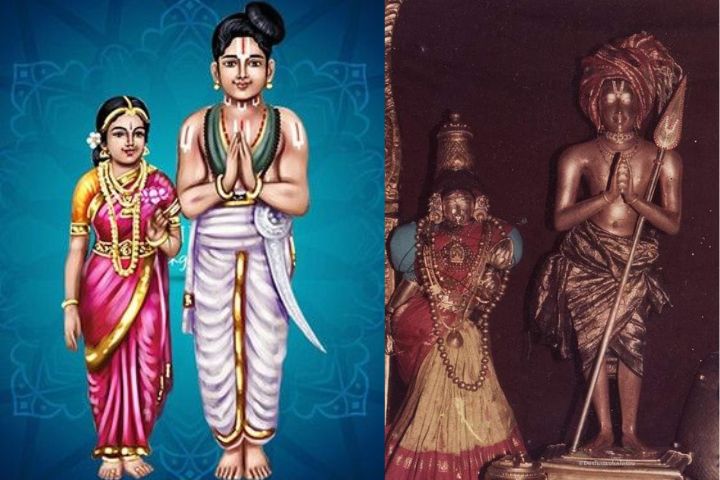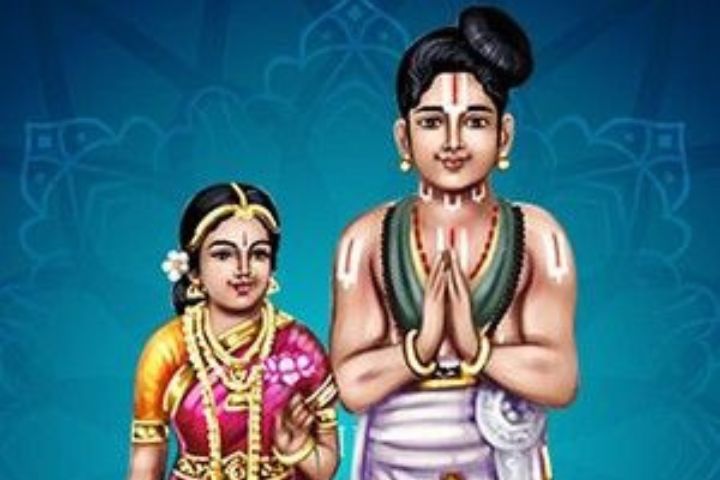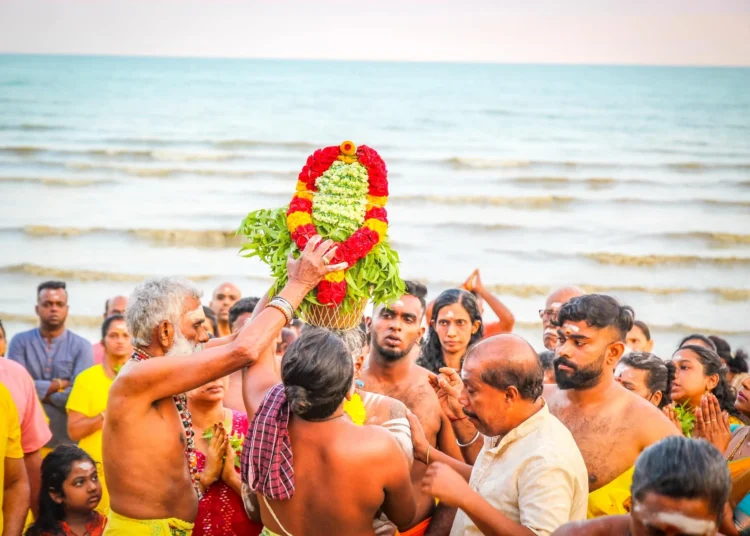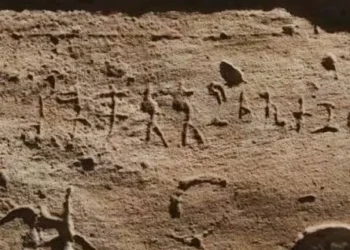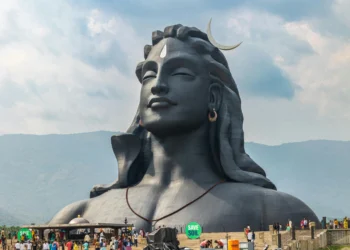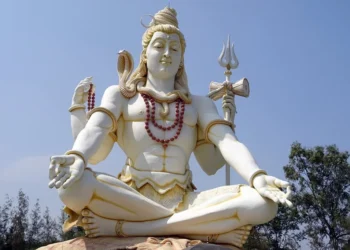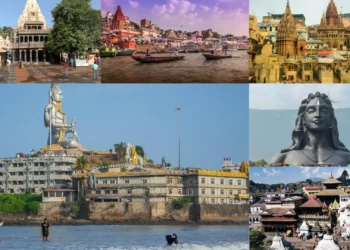Recently, many rejoiced at the news of the stolen idol of Thirumangai Alwar being returned to India from the Ashmolean Museum at Oxford University in London.
This idol, stolen decades ago by smugglers, has finally found its way back home, where it belongs.
The repatriation procedure is being overseen by the Tamil Nadu Police’s Idol Wing CID (IWCID), led by Inspector General of Police (IGP) R. Dhinakaran.
While this is an occasion for celebration among Indians worldwide, it also prompts the question: who was Thirumangai Alwar, and what is his significance in our history?
Thirumangai Alwar: A Glorious Legacy of Devotion and Poetry
Thirumangai Alwar, also known as Thirumangai Mannan, holds a revered place in the annals of Tamil Vaishnavism.
He is the 12th and last of the Alwar saints of South India, celebrated for their unwavering devotion to Lord Vishnu.
Among these saints, Thirumangai Alwar stands out for his erudition, poetic brilliance, and profound contributions to Tamil devotional literature.
He is also known by the epithets Narkavi Perumal (mark of an excellent poet) and Parakala (beyond time).
Early Life and Transformation
Born as Neelan in Thirukkuraiyaloor, a small village in the Chola Empire renowned for its Vishnu devotees, Thirumangai Alwar’s life began in an environment steeped in devotion and discipline.
His father, Aalinaadaar, was a chief in the Chola army, and Neelan received a well-rounded education in warfare, Tamil, Sanskrit, and governance.
Recognising his valour and intelligence, the Chola king appointed Neelan as the ruler of Thirumangai, bestowing upon him the title *Thirumangai Mannan*.
His bravery and strategic acumen in battle earned him the name *Parakaalan*, meaning “one who cannot be defeated.”
Love and Spiritual Awakening
Thirumangai Mannan’s life took a transformative turn when he encountered Kumuthavalli Nachiyar, a devout and virtuous woman.
According to legend, Kumuthavalli was a celestial maiden (*deva kanigai*) cursed by the sage Kapila and born on Earth.
Captivated by her beauty and piety, the king sought her hand in marriage. Kumuthavalli agreed but set a condition: he must dedicate his life to serving Lord Vishnu.
Deeply in love, Thirumangai Mannan accepted this path.
As part of the condition, Thirumangai Alwar must take up the task of feeding 1,008 Vishnu devotees daily, which he did for the women of his dreams.
However, the financial strain of this endeavour soon depleted his wealth.
Determined to fulfil his vow, Thirumangai Alwar together with his ministers resorted to robbing the wealthy to sustain their charitable activities. This marked the beginning of his spiritual transformation.
Divine Encounter and Enlightenment
During one of his robberies, Thirumangai encountered a divine couple—Lord Vishnu and Goddess Lakshmi disguised as newlyweds.
After seizing their ornaments, he found himself unable to lift the sack containing them. Frustrated, he accused the couple of using magical powers.
Lord Vishnu then revealed his divine form and initiated Thirumangai into Vaishnavism by imparting the sacred *Ashtaakshara Mantra*.
This profound encounter enlightened Thirumangai, transforming him into an ardent devotee. Moved by this experience, he sang his first verses in praise of the Lord:
“Vaadinen; vaadi varundhinen; Manathaar perunthuyar… Naadinen; Naadi Naan Kandu konden Narayana Ennum Naamam.”
From that moment, he became known as Thirumangai Alwar.
Contributions to Tamil Devotional Literature
Thirumangai Alwar’s poetic compositions are among the most significant in Tamil literature. He authored six prabandhams comprising 1,361 verses—the largest body of work among the Alwars. His masterpieces include:
- Periya Thirumoli (1,084 hymns)
- Thirunedunthandagam (30 verses)
- Thirukuruthandagam (20 verses)
- Thiruvezhukootirukkai (47 lines)
- Siriya Thirumadal (155 lines)
- Periya Thirumadal (297 lines)

These compositions extol the greatness of Vishnu’s shrines, explore human suffering, and emphasize *bhakti* (devotion) as the path to salvation.
His works are considered the Tamil Vedangas, complementing the Vedas composed by Nammalwar.
Pilgrimages and Temple Contributions
As part of his devotion, Thirumangai Alwar visited 88 of the 108 Divya Desams, composing hymns in praise of these sacred sites.
He played a pivotal role in constructing the third wall of the Sri Ranganathar Temple in Srirangam, using gold obtained from melted statues.
Additionally, he introduced the idol of Nammalwar to Srirangam from Azhwar Thirunagari, organizing a grand ten-day festival to commemorate the event.
Legacy and Celebrations
Thirumangai Alwar’s legacy is celebrated annually during the Thirumangai Alwar Mangalasasana Utsavam in the Tamil month of Thai.
This festival features the grand *Garudasevai* event, where idols from eleven Divya Desams converge at Thirunangur.
Devotees recite his *paasurams* at these shrines, honouring his contributions.

Vaishnavas revere Thirumangai Alwar as an incarnation of Sharanga, Lord Vishnu’s celestial bow. His life—marked by transformation, devotion, and poetic brilliance—continues to inspire generations of devotees.
Source: Astropedia, Sri vaishnava sambradhayam
Follow us on Instagram, Facebook or Telegram for more updates and breaking news.


